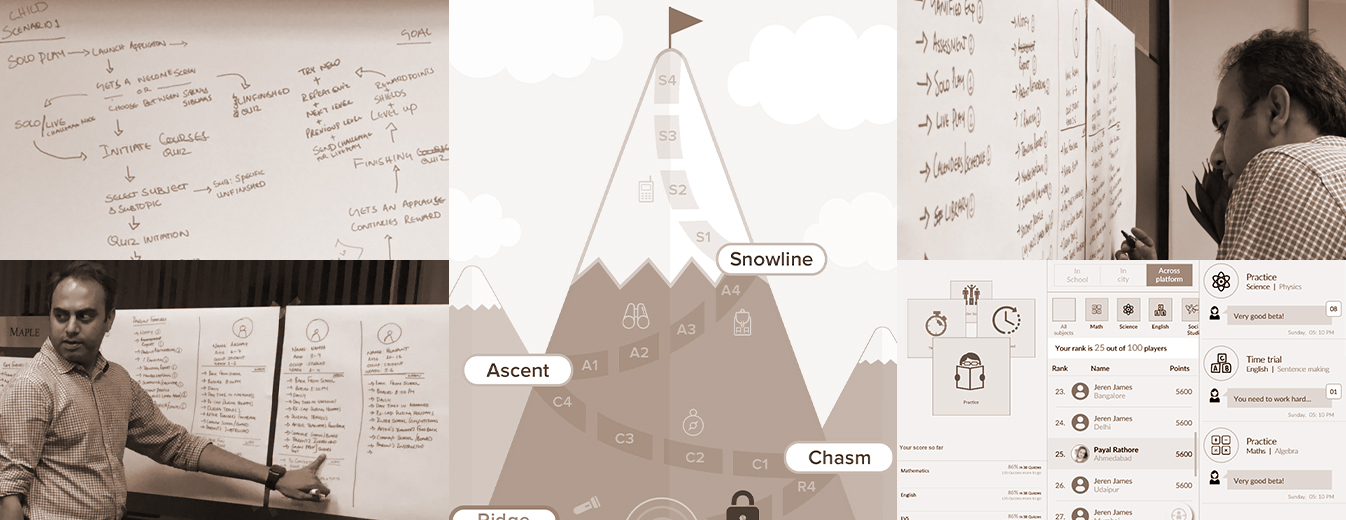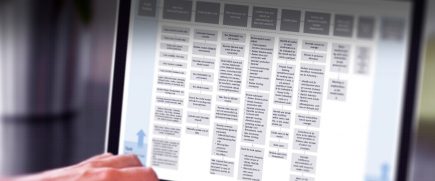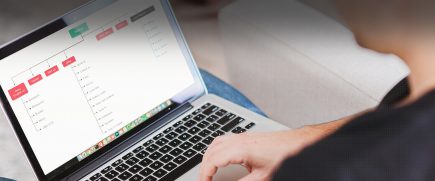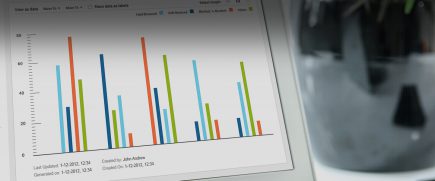Challenge
With the rise in online educational applications, parents and children are constantly under pressure to stretch their boundaries. While most of the EDtech apps provide necessary content through functionally relevant apps, they do not provide the much needed ‘fun’ factor that engages and motivates children to use.
Most of the current apps also severely fall short of parents’ expectations in terms of tracking their children’s progress using these apps, thereby leaving a huge gap between what they would have appreciated and what is.
Our Methodology
With the deep understanding of the landscape and technological knowhow, the stakeholders at Playablo had insights and directions on where to take the app. Think Design was instrumental in extracting these insights and giving shape to those ideas while enriching them.
A two day stakeholder workshop resulted in articulation of the model and positioning of the app; a sweet spot that lies at the intersection of seriousness of curriculum and fun of gamification. These articulated stakeholder insights led to design planning and execution that required strategic orientation as well as mindful craft. A few of the several design concerns addressed were:
- Conceptualizing, prototyping and validating new formats of questions with seamless interaction design and feedback.
- Imagining and creating parents’ and students’ personal dashboards that follow a common design system, yet relevant to the mental models of these two quite varied set of user segments.
- Designing flows and feedback mechanisms that allowed for intuitive navigation.
- Creating and executing a design system and GUI language that is unisex, children relevant yet not casual/ cartoonish in appearance.
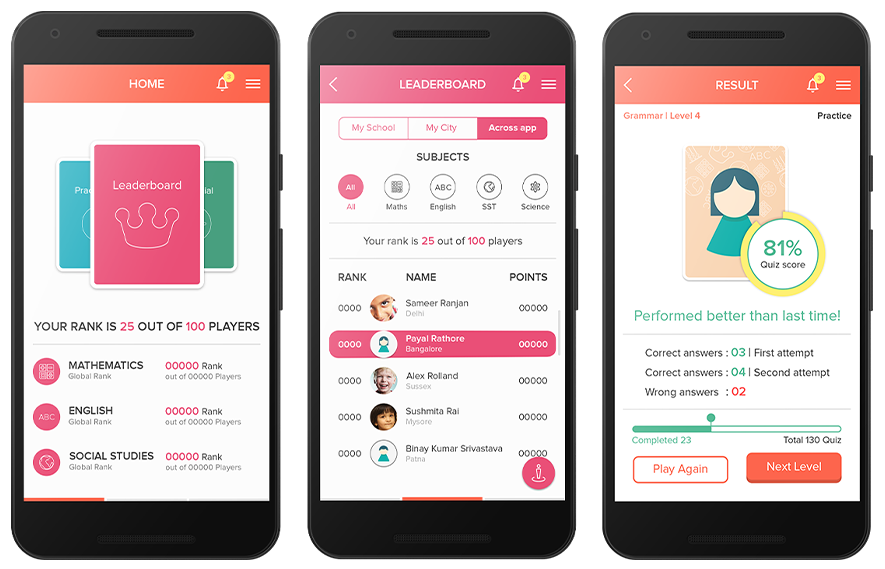
Stakeholder workshop, Documentation, Design planning, Design and GUI system, Wireframing, Storyboarding, Low fidelity prototyping, Visual asset library, Product Website design and development, User testing, Explainer videos and Development coordination.
DESIGN ACTIVITIES
Stakeholder workshop, Documentation, Design planning, Design and GUI system, Wireframing, Storyboarding, Low fidelity prototyping, Visual asset library, Product Website design and development, User testing, Explainer videos and Development coordination.
CURRENT STATUS
Playablo apps were launched in 2016. As of 2017, it has a user base of about 50K users with excellent parent and teacher feedback.
